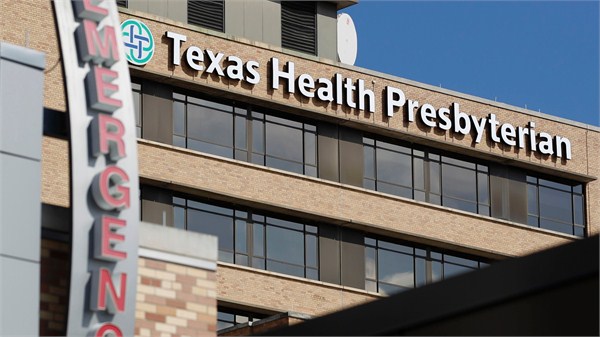Atlanta, Oct. 12, 2014, — A healthcare worker at Texas Presbyterian Hospital who provided care for the index patient has tested positive for Ebola according to preliminary tests by the Texas Department of State Health Services’ laboratory. The patient was isolated after the initial report of a fever and remains so now. Confirmation testing at the Centers for Disease Control and Prevention’s laboratory is being done today.

On Friday October 10, a healthcare worker at Texas Presbyterian Hospital who provided care for the index patient reported a low grade fever and was referred for testing. The health care worker had been self-monitoring for fever and symptoms.
The hospital and patient were notified of the preliminary positive result. In addition, CDC has interviewed the patient to identify any contacts or potential exposures in the community.
This is understandably disturbing news for the patient, the patient’s family and colleagues and the greater Dallas community. The CDC and the Texas Department of State Health Services remain confident that wider spread in the community can be prevented with proper public health measures including ongoing contact tracing, health monitoring among those known to have been in contact with the index patient and immediate isolations if symptoms develop.
Ebola is spread through direct contact with bodily fluids of a sick person or exposure to objects such as needles that have been contaminated. The illness has an average 8-10 day incubation period (although it could be from 2 to 21 days) so CDC recommends monitoring exposed people for symptoms a complete 21 days. People are not contagious during the incubation period, meaning before symptoms such as fever develop.
CDC tests results will be shared when confirmatory tests are done, following appropriate patient notification.
White House Reviews Response to the Ebola Epidemic
This afternoon, President Obama met with his senior health, homeland security, and national security advisors to review the United States’ response to the Ebola epidemic.
The participants discussed the Ebola case in Dallas, Texas; the United States’ broader preparedness plans; and both domestic and international efforts to contain and end the epidemic. Participants also discussed options to enhance airport screening in the United States and the need to tackle Ebola at its source in West Africa, where the United States has launched a civilian-led whole-of-government effort that leverages the unique capabilities of the U.S. military to help bring the epidemic under control.
In remarks following the meeting, the President reiterated that our country’s public health infrastructure is well-prepared to prevent an Ebola outbreak in the United States.
“It is important for Americans to know the facts,” the President said. “Because of the measures that we’ve put in place, as well as our world-class health system and the nature of the Ebola virus itself — which is difficult to transmit — the chance of an Ebola outbreak in the United States is extremely low.”